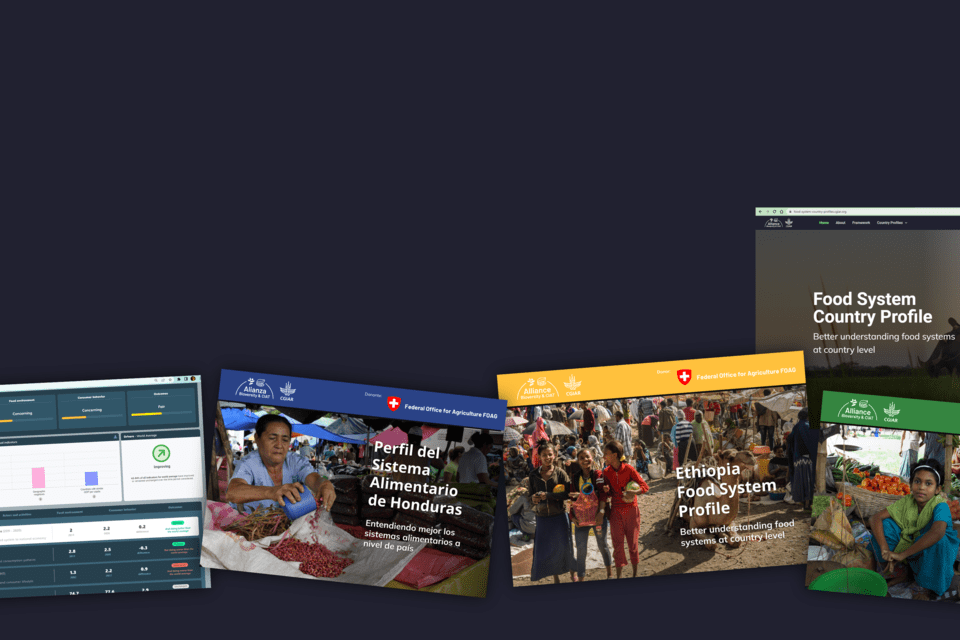Engaging Honduran stakeholders around food system transformation
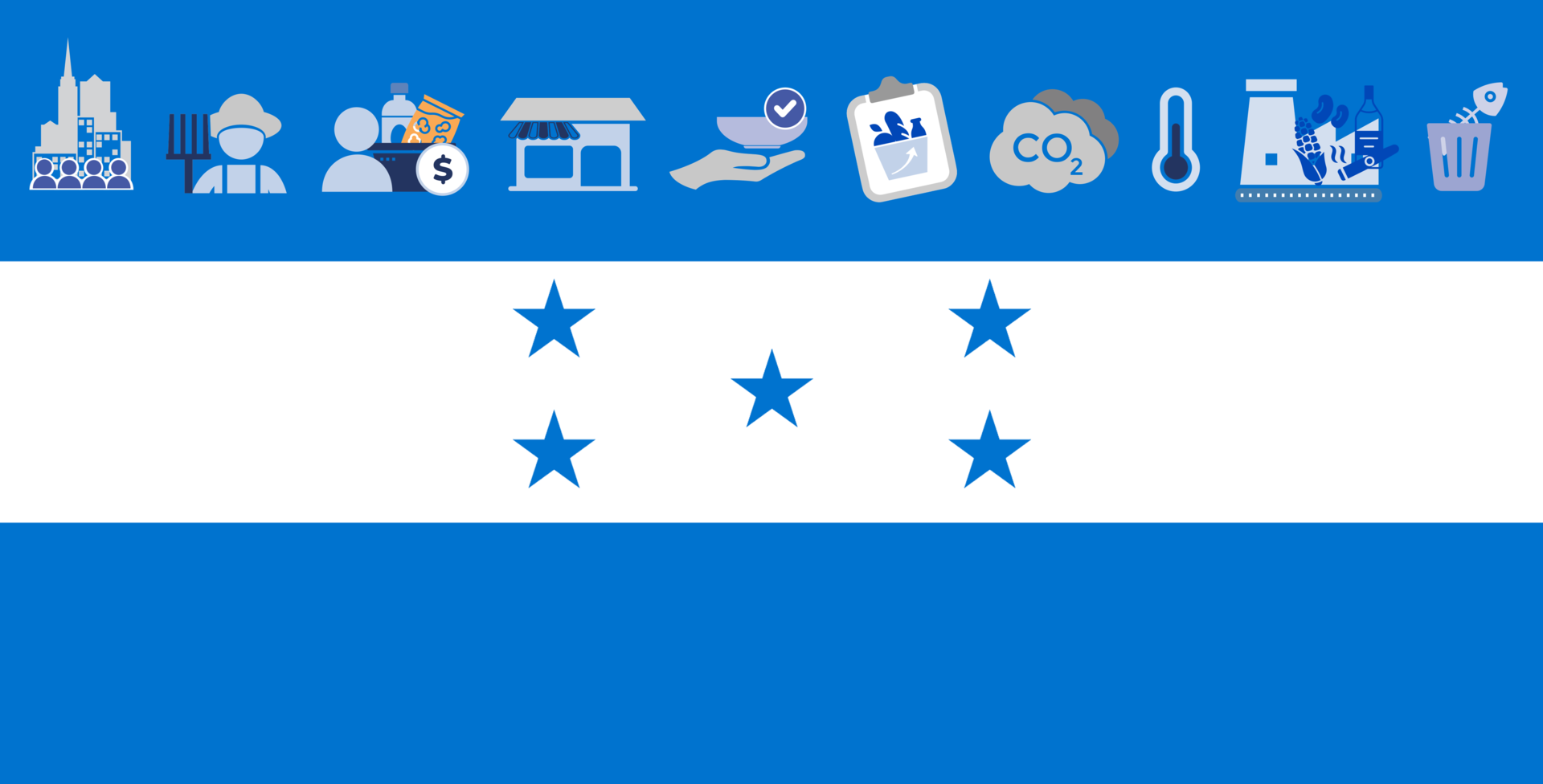
By Denise van Wissen and Jenny Wiegel
"I believe that as a country and as a region we have sufficient availability of food in the markets; what is affecting us is the inequalities between that our population grouplives, both in terms of income and access. We have populations with strong limitations in terms of quantity and quality of food and this generates food insecurity and malnutrition in the child population, but on the other hand there are overweight and obese populations and this corresponds to the food culture that we have to improve: how we teach the population to discern between what to buy and what to consume, at what time to buy and at what time to consume. This is an issue that we need to work on with today's adolescent and child population," José Lino Pacheco, Director of the Technical Unit for Food Security (UTSAN) of the Government of Honduras.
This is the story of our experience in mobilizing stakeholders in Honduras around food system transformation. This process, motivated by an interest in creating a country food system profile, has served to create motivation, energy, ideas and shared commitments around food systems in Honduras including contributing to the development of Honduras' official Roadmap for the Food Systems Summit. We share below more of the story of the stakeholder engagement process working towards a food systems country profile for Honduras. The profiles, under development, are a tool to identify critical points of unsustainability in food systems and prioritize interventions at multiple scales, in order to address these problems through specific actions and investments.
The first task was a desk-based review of documents and websites relevant to food systems in Honduras, to identify existing literature, data sources, and relevant actors. We also contacted organizations working on food system related issues in Honduras. Conference calls and document exchanges with Rikolto, active promoter of city food system work in Tegucigalpa aligned with the Milan Pact, helped get us started.
For mid-2020, we had hoped to host in-person workshops, but due to continued pandemic restrictions, we were forced to design a virtual event for the first proposed gathering (and later, for the following three). Participants included representatives of six private sector groups, four government institutions, three United Nations agencies, four non-governmental organizations and one academic institution.
The Introductory workshop not only introduced the 29 participating stakeholders to each other, but also to the use of our chosen virtual platforms and collaborative Google documents, and to our food system framework (Figure 1) which represents the food system in five components, as shown below. Drivers consist of trends which shape the rate and direction of change of the food system, focusing on three types of drivers – those that affect production and supply, distribution and trade and consumption and demand. Actors and activities include all actors involved in the supply of food, from production to consumption. The food environment is the context in which consumers access food, including what is available, where, and in what quality, quantity and price. Consumer Behavior captures the choices consumers make within a given food environment that determine what is finally consumed and how. Finally, outcomes capture the impacts of the food system in terms of the environment, nutrition and health, and economic and social factors. Unavoidable trade-offs as well as synergies between different food system outcomes, must also be examined.
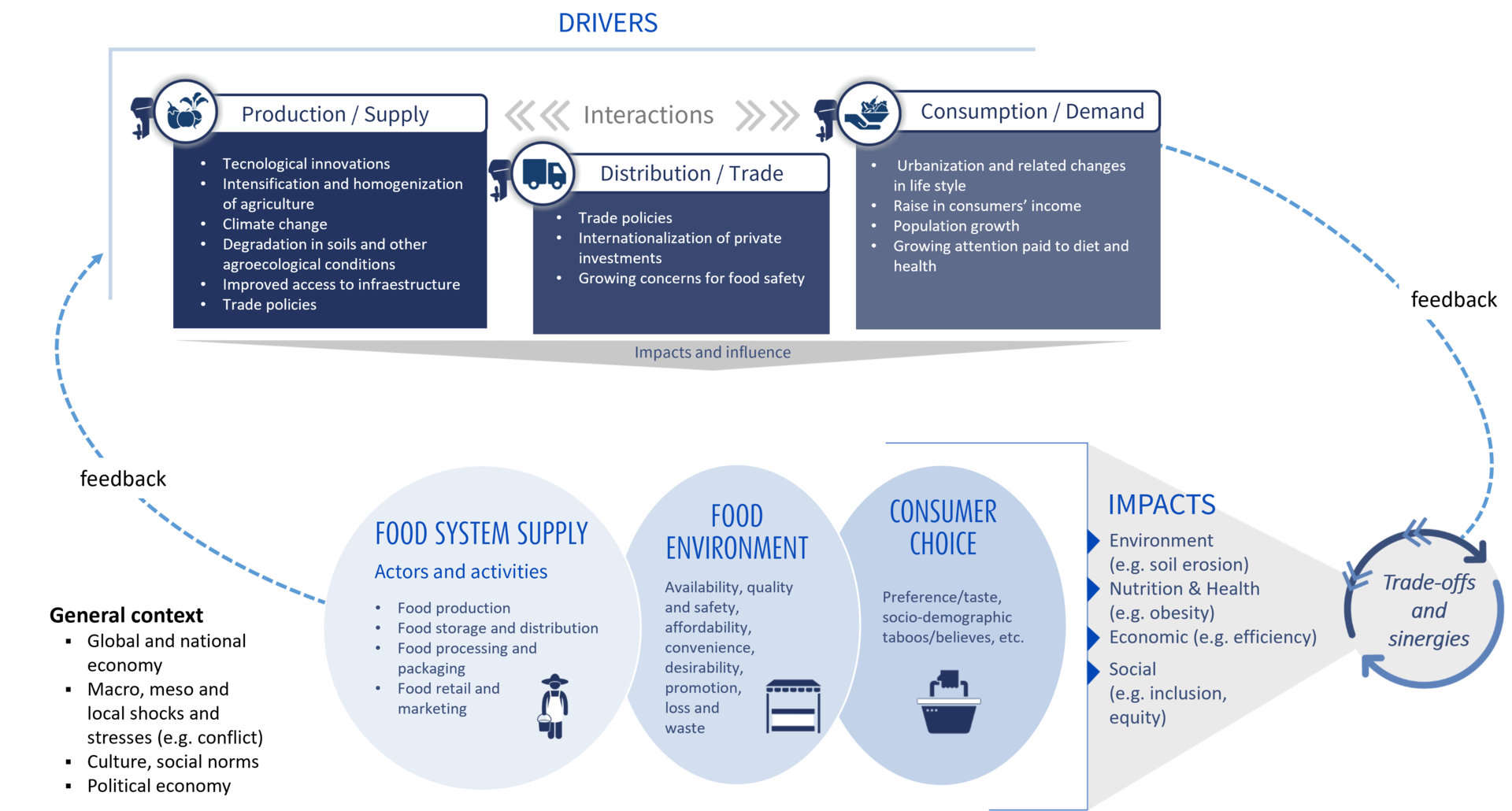
In the workshop, ‘breakout’ discussion groups were formed as each stakeholder chose the component of the food system with which they felt greatest affinity to describe their component based on the dimensions, subdimensions and guiding questions. The main products of this introductory event was a shared understanding of the components of a food system to orient discussion, and an initial characterization of the components of the Honduran food system.
"This series of workshops detailed, analyzed and demonstrated in a differentiated and evidence-based way the state of food systems in the country, in order to determine what the structures, actors, drivers and possible solutions are. It is essential to consider these food systems, as they affect all aspects of our existence, from health to the sustainability of our environment, our economies and our cultures," Dennis Latimer, Representative of the Food and Agriculture Organization of the United Nations (FAO) - Honduras.
The second workshop was held a month later, at the end of November, focused on identifying food system indicators and data sources for the different components and subcomponents. In preparation, we compiled an inventory of 136 publicly available indicators for Honduras across all of the food system components. We shared our inventory with this event’s attendees, who then added more indicators, data, and data sources to the tables, working in groups by component based on each participants’ area of expertise.
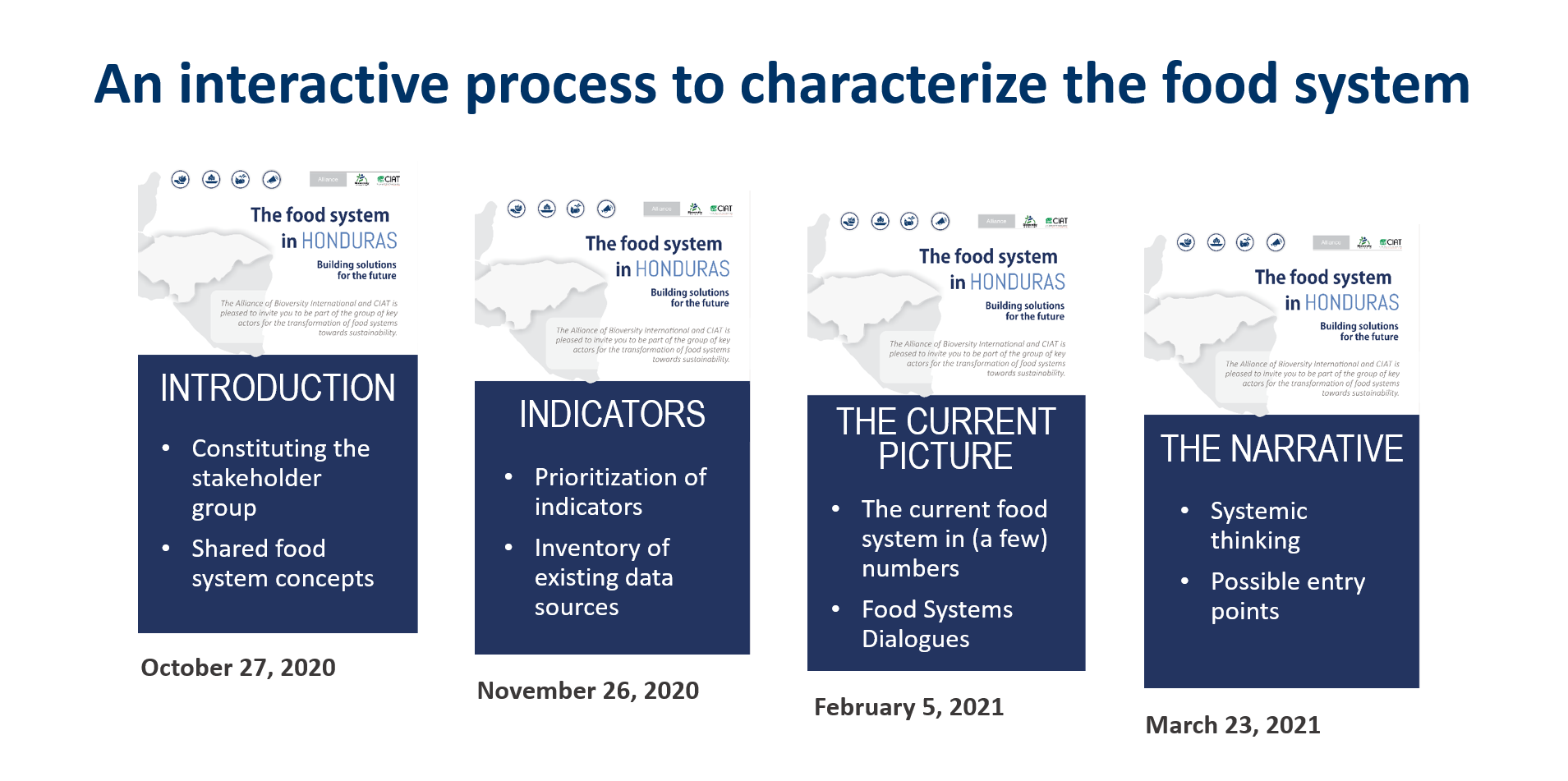
After a few months of revising the indicator inventory based on the recommendations from stakeholders, and prioritizing indicators by component, it was time to bring the stakeholders together again, in February 2021, to review our work to date, as a ‘snapshot’ of the current Honduras food system. We now had an inventory of 170 indicators, mapped by food system components, dimensions and subdimensions. For each of the five food system components, we presented five or six indicators that we felt best represented the component, based on five criteria about the data: representativity, contemporariness, accessibility, availability over time, and likelihood of repetition. Workshop participants worked in groups to review the selected indicators for one food system component each, to determine the most relevant ones and to begin to tell the story of the current state of Honduras’ food system, based on the selected indicators and their values.
"This process brought invaluable learning because it has allowed me to exchange ideas and technical criteria with other colleagues from the government through UTSAN, academia, NGOs, international cooperation and private sector organizations. We also learned about experiences and lessons learned by other countries that have implemented it, such as Vietnam, Bangladesh, and Colombia (in the city region of Cali), which generated inputs for the characterization and improvement of our food system,” Marvin Oseguera, Economic Policy Officer, Honduran Council of Private Enterprise (COHEP).
To read more from Honduras’ private sector, check out this article (in Spanish) by Marvin Oseguera: Los Sistemas Alimentarios Sostenibles: Una Oportunidad para Honduras: https://www.voxpopulihn.com/los-sistemas-alimentarios-sostenibles-una-oportunidad-para-honduras
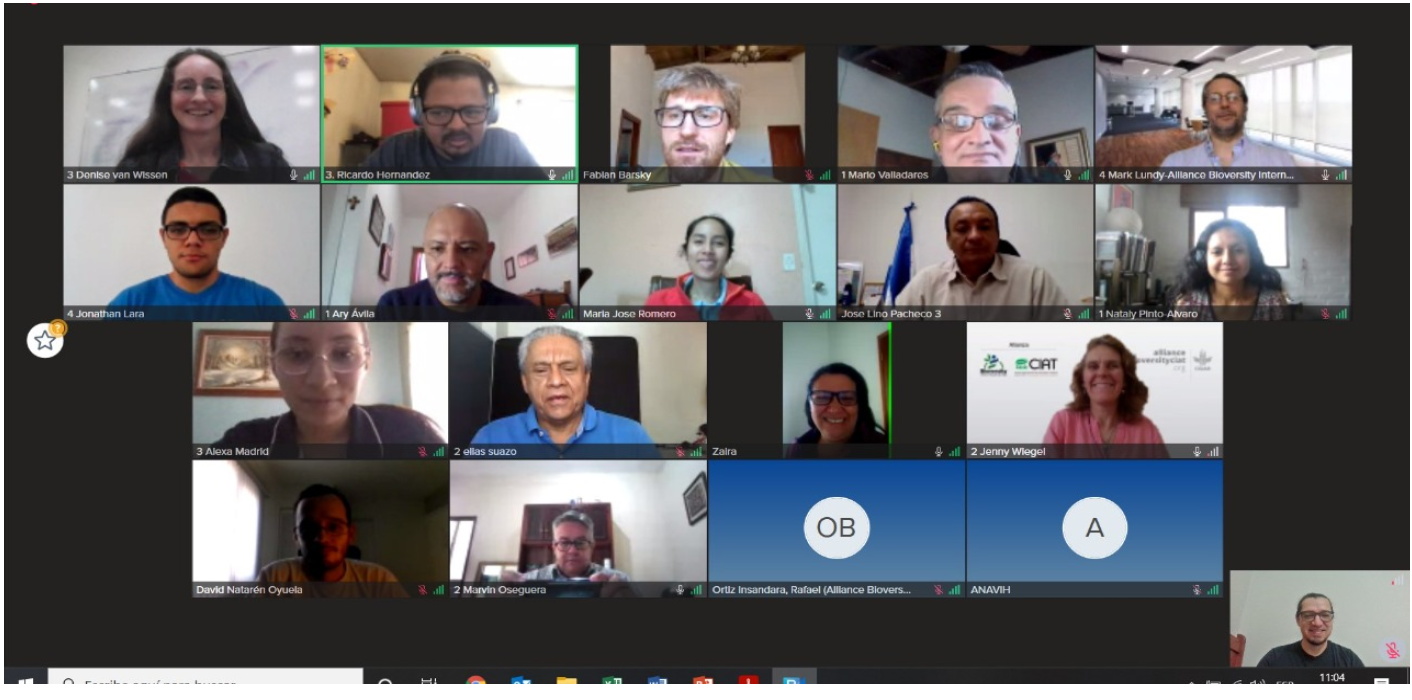
In the fourth event at the end of March, we shared a revised short list of 30 indicators that characterize the current state of the food system in Honduras, and endeavored to stimulate participants’ thinking about transformative actions by identifying action areas and the types of actions required. This prepared the stakeholders for the food systems dialogues process ahead of the UN summit and helped ensure their active participation not only as contributors but as discussion group facilitators. As a part of this stakeholder process, the Alliance of Bioversity International and CIAT supported the Honduras Food Systems Dialogues, in collaboration with the Honduran government and the UN system in Honduras.
To date 41 stakeholders have engaged in this process directly. Over 300 stakeholders from across the country have contributed indirectly through their participation in the Honduras Food Systems Dialogues contributing ideas for action which informed the Honduras Roadmap for Food Systems Transformation presented at the Food Systems Summit. We would like to thank all of the many Honduras stakeholders for their active and enthusiastic participation in the workshops and for their help and valuable input. Together we are creating a very useful and information rich profile of the Honduras food system that can guide transformative action towards the 2030 Sustainable Development Goals.
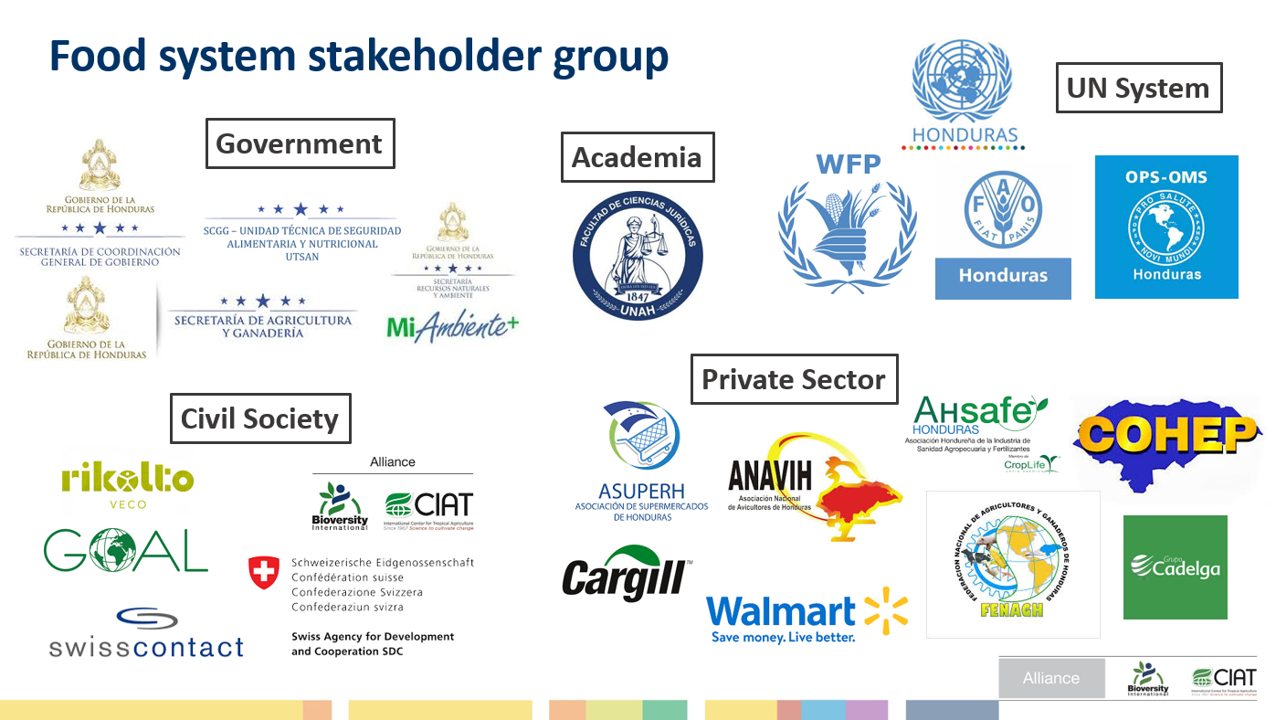
Tool
Related stories:
- Building Food System Country Profiles to support decision-making in Low- and Middle-Income Countries
- Supporting the food systems dialogues for Honduras ahead the UN summit
- Central American Integration System (SICA) Dialogue on the Path to the 2021 Food Systems Summit
- Capturing fine diet data in Vietnam to guide action on food systems transformation
- How well do you know Cali’s food system?

